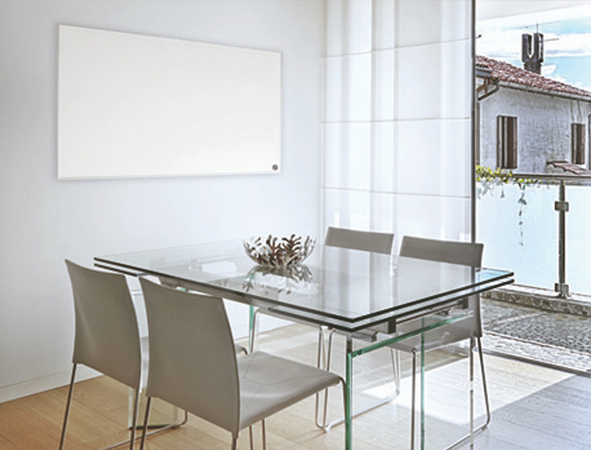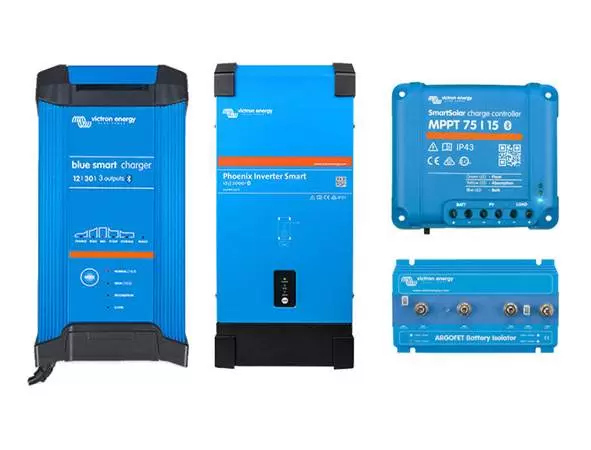Many options are available in the market when it comes to heating your home or office. However, one solution that is gaining popularity for its efficiency and effectiveness is Hydronic Heating Panels. These panels use water to heat spaces, providing a comfortable and consistent warmth throughout. Let’s dive into their mechanism and advantages to understand how hydronic-heating panels work and why they are becoming more popular. Hydronic heating, or radiant heating, utilizes a series of pipes and radiators that distribute hot water throughout the home or office.
Benefits of Hydronic Panels
Hydronic panels, also known as hydronic radiant heating systems, offer several benefits:
- Energy Efficiency: Hydronic panels are highly efficient because they operate at lower temperatures than traditional forced-air heating systems. They distribute heat evenly across surfaces, reducing energy waste and lowering utility bills.
- Comfort: Radiant heating provides consistent warmth throughout a room without the drafts or cold spots common with forced-air systems. Hydronic panels emit radiant heat, which warms objects in the room, including people, furniture, and floors, creating a more comfortable environment.
- Space Saving: Hydronic panels are typically installed within walls, ceilings, or floors, saving valuable space compared to traditional radiators or HVAC units. It makes them particularly suitable for modern, minimalist designs or spaces with limited floor space.
- Quiet Operation: Unlike forced-air systems that can be noisy when the blower turns on and off, hydronic panels operate silently since they don’t require fans or blowers to distribute heat.
Enhanced Comfort and Consistent Heating
One of the standout features of Hydronic Panels is their ability to deliver unparalleled comfort through consistent heating across every room corner. Traditional heating methods often struggle to maintain a uniform temperature, leading to zones of varying warmth that can compromise comfort. Hydronic Panels, on the other hand, excel in evenly distributing heat, thanks to the nature of water as a heat conductor.
Water’s capacity to store and transfer heat efficiently means these panels can provide a steady warmth that permeates a space evenly, eliminating the hot and cold spots commonly experienced with other heating systems. The secret to this consistent heating lies in the design of the Hydronic-Heating Panels.
By circulating warmed water throughout the system, these panels ensure that heat is released gently yet effectively, maintaining a constant temperature that feels natural and comfortable. This method of heat distribution not only elevates the comfort level but also caters to the preferences of all occupants, ensuring everyone can enjoy a cozy environment without the need for constant adjustments.
Improved Air Quality for Healthier Living
One significant advantage of hydronic Panels is their contribution to healthier indoor air quality. Unlike traditional forced-air heating systems, which can circulate and propagate dust, allergens, and other airborne particles throughout a space, Hydronic Panels operate without disturbing the air. This attribute is particularly beneficial for individuals suffering from allergies, asthma, or other respiratory conditions, as it minimizes exposure to potential irritants.
These panels ensure that the air in your home or office remains cleaner and fresher by eliminating the need to move air to disperse warmth. Reducing airborne particulates can lead to a noticeable improvement in breathing comfort and overall health. This is especially important in environments where air quality is a concern, providing peace of mind to those attentive to the cleanliness of their living or working spaces.
Moreover, the nature of Heating Panels’ operation supports a healthier environment and contributes to a more comfortable and serene atmosphere. The absence of fans or blowers means that air is not being forcefully circulated, preventing the spread of dust and the drying out of the air, which can further irritate sensitive airways and skin.
Efficient and Cost-Effective Heating Solution
Hydronic-Heating Panels offer a remarkable balance of efficiency and cost savings, setting them apart as a smart investment for homeowners and businesses. These panels harness the thermal conductivity of water, an inherently more efficient medium for heat transfer than air. This core principle allows for a more uniform heat distribution, ensuring spaces are warmed effectively without the excessive energy drain associated with traditional heating systems. As a result, users can enjoy consistent warmth across their premises while benefiting from reduced energy consumption.
The initial installation of Hydronic-Heating Panels may be perceived as an upfront cost, but the long-term savings on utility bills make it a financially savvy choice. The system’s ability to operate at lower temperatures yet deliver high comfort levels translates into lower operational costs. This efficiency is further enhanced by the system’s design flexibility, which allows customization to meet the specific heating demands of any given space without surplus energy use.
Moreover, the water-based operation of these panels eliminates the need for frequent on-and-off cycling, a common energy-wasting trait in conventional heating systems. Hydronic-Heating Panels reduce wear and tear by maintaining a steady temperature with minimal energy input, prolonging their lifespan and diminishing the need for costly repairs or replacements.
Versatility in Design and Installation
The adaptability of Hydronic-Heating Panels to a wide range of spaces is one of their most appealing features. Whether your preference leans towards sleek, wall-mounted panels or you’re intrigued by the seamless integration of underfloor heating, these systems can accommodate your design aspirations. This flexibility is not confined to just aesthetic considerations; it also extends to the practical aspects of installation. Installing Hydronic-Heating Panels is characterized by its straightforwardness, making it feasible for renovation projects and new constructions.
Thanks to their versatility, these panels can be incorporated into various architectural styles without detracting from the space’s overall look and feel. Architects and homeowners alike appreciate this aspect, as it allows for creative freedom in interior design without compromising on heating efficiency or comfort. Moreover, the installation options are not just limited to the type of panels but also encompass a range of configurations to suit the heating requirements of the area best, ensuring optimal warmth distribution.
Longevity and Low Maintenance of Hydronic Heating Panels
The enduring nature and minimal upkeep required for Hydronic Heating Panels set them apart from traditional heating systems. These panels are constructed with durability in mind, designed to withstand the rigours of daily use without succumbing to the wear and tear that can plague other types of heating systems. This robustness ensures that they remain an efficient and effective heating solution for years, offering homeowners and businesses a reliable source of warmth.
Maintenance of Hydronic-Heating Panels is straightforward and infrequent, largely due to their simple operation and fewer moving parts compared to forced-air systems. The primary requirement is an occasional check of the system’s water pressure and temperature settings to ensure optimal performance. Additionally, inspecting for leaks or any signs of corrosion in the pipes and panels can preempt potential issues, allowing for timely interventions that prevent major repairs.
This low-maintenance aspect is especially beneficial for those seeking a hassle-free heating solution. The time and expense typically associated with the upkeep of traditional heating systems are significantly reduced, providing added value over the lifespan of the Hydronic-Heating Panels. As a result, users can enjoy the comfort and efficiency of their heating system without the burden of frequent maintenance or the fear of unexpected breakdowns disrupting their comfort and routine.
Maximum Energy Savings with Hydronic Heating
The maximum energy savings with hydronic heating can be achieved through several strategies:
- Efficient Boiler: Invest in a high-efficiency boiler or water heater for your hydronic heating system. Modern condensing boilers can achieve efficiency ratings of over 90%, significantly reducing energy consumption compared to older, less efficient models.
- Proper Insulation: Ensure that your home is well-insulated to minimize heat loss. Good insulation in walls, floors, and ceilings helps retain heat generated by the hydronic system, reducing the energy needed to maintain comfortable temperatures.
- Thermostat Control: Install programmable or smart thermostats to efficiently control the hydronic heating system. Set temperature schedules based on occupancy patterns to avoid heating empty spaces unnecessarily and optimize comfort when needed.
- Zoning: Divide your home into zones with separate thermostatic controls for each area. It allows you to heat only the occupied spaces, reducing energy consumption by avoiding overheating unoccupied rooms.
- Radiant Floor Heating: Radiant floor heating offers excellent energy efficiency by heating the room from the bottom up. It distributes heat evenly and minimizes heat loss compared to systems that rely on heating the air.
Flexible Placement Options for Maximum Comfort
The adaptability of Hydronic Panels to be placed in various strategic locations within any given space is a significant advantage for achieving optimal comfort. This flexibility in placement ensures that warmth can be evenly distributed, catering to the unique layout of each room or area. Integrating panels into the walls of a cozy living room, embedding them beneath the floors of a spacious office, or situating them in specific zones where people spend the most time, the possibilities are vast and varied.
This ability to customize the positioning of Hydronic-Heating Panels allows for a targeted approach to heating. It creates a tailored, warm environment where every corner of the space reaches a comfortable temperature, devoid of the uneven heating issues often found in traditional systems. Additional panels can be easily incorporated for areas that require more heat due to higher ceilings or larger windows to maintain a consistent warmth throughout.
Conclusion
Embracing Hydronic Heating Panels marks a smart move towards optimizing indoor warmth and overall environmental quality. Their innovative approach to heating, leveraging the efficient thermal properties of water, not only ensures spaces are comfortably heated but also promises a significant reduction in energy consumption. The adaptability of these systems to various architectural designs and their minimal maintenance requirements underscore their appeal to both homeowners and commercial entities alike.
FAQS
Q: Can Hydronic Heating Panels Be Adapted To Any Room Size Or Design?
A: Absolutely. Whether for a small residential room or a large commercial space, Hydronic Panels offer remarkable flexibility in both design and installation. They can be seamlessly integrated into various settings without disrupting the aesthetics, making them suitable for virtually any architectural style or space requirement.
Q: What Is The Expected Lifespan Of Hydronic-Heating Panels, And What Maintenance Do They Require?
A: Hydronic Panels are built to last, and many systems have operated efficiently for decades. Maintenance is minimal, typically involving periodic checks of the system’s water pressure and temperature and inspections for leaks or corrosion. This simplicity in upkeep not only extends the panels’ lifespan but also ensures they remain an effective heating solution over the years.
Q: How Do Hydronic Panels Contribute To Energy Savings?
A: These panels utilize water’s superior thermal conductivity, enabling a more efficient heat distribution that requires less energy to maintain comfortable temperatures. This efficiency is reflected in reduced energy consumption and lower utility bills, making Heating Panels an economically smart choice for both immediate and long-term savings.



